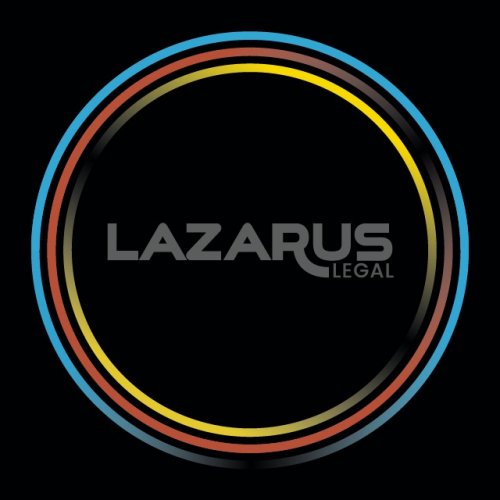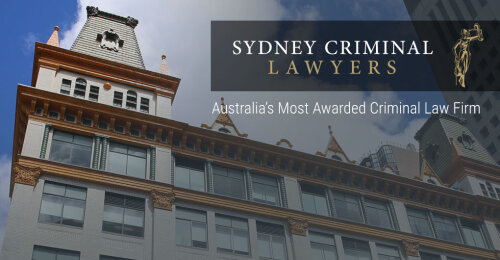Best General Litigation Lawyers in Australia
Share your needs with us, get contacted by law firms.
Free. Takes 2 min.
Or refine your search by selecting a city:
List of the best lawyers in Australia
About Litigation Law in Australia
Litigation in Australia refers to the process of taking legal action in court to resolve a dispute. This can involve civil litigation, which typically includes disputes over contracts, property, or corporate issues, and may also cover personal injury claims. The Australian legal system is based on common law, and litigation can take place in various courts depending on the nature and size of the dispute, such as local courts, the Federal Court, or the High Court of Australia. Litigation can be a complex procedure involving multiple stages including pleadings, discovery, and potentially a court trial.
Why You May Need a Lawyer
There are several common situations where you might require legal assistance in litigation:
- You have a dispute over a breach of contract and need to determine your legal options.
- You are involved in a property dispute, such as issues with a neighbor over property boundaries or title claims.
- You are pursuing a personal injury claim and need representation to seek compensation.
- Your business is facing litigation, either as a plaintiff or defendant, in disputes with clients, suppliers, or partners.
- Family law matters such as divorce and child custody require legal representation.
Local Laws Overview
Australia's legal framework for litigation is influenced by both federal and state-level legislation. Key aspects of the local laws include:
- The Civil Procedure Act governs the general procedures for civil courts within each state.
- The Federal Court Rules outline procedures specific to federal cases, often relevant in corporate and larger-scale disputes.
- Alternative Dispute Resolution (ADR) practices such as mediation and arbitration are actively encouraged and sometimes required before escalating to litigation.
- Consumer protection laws that impact litigation, especially in areas like product liability and unfair trade practices.
- Strict time limits (statutes of limitations) apply to bringing forward litigation cases, varying between states and types of cases.
Frequently Asked Questions
What is the first step in commencing litigation?
The initial step usually involves drafting and filing a formal statement of claim with the appropriate court and serving it to the other party involved in the dispute.
How long does litigation take in Australia?
The duration can vary significantly depending on the complexity of the case, the court's calendar, and whether the case is settled out of court. It can range from several months to several years.
Can I settle my dispute without going to court?
Yes, many disputes are resolved through negotiation, mediation, or arbitration, avoiding the need for costly and formal court proceedings.
What is “discovery” in the context of litigation?
Discovery is the process where both parties involved in a dispute are required to disclose all relevant documents and information before the trial to ensure transparency.
Do I have to be represented by a lawyer?
Although you can represent yourself, known as self-representation, it is typically advisable to hire a lawyer due to the complexities involved in legal procedures and presentation.
Are there any costs associated with litigation?
Yes, litigation can be costly, including court fees, lawyer’s fees, and other potential costs like fees for expert witnesses or document preparations. In some cases, the losing party may also be required to pay the winning party's legal costs.
What if I cannot afford a lawyer?
Those who cannot afford legal representation may be eligible for legal aid, depending on their financial circumstances and the type of case.
What role does a judge play in litigation?
The judge presides over the court proceedings, ensures fair trial protocols, interprets laws, assesses evidence, and gives the final verdict and judgment.
What is an interlocutory application?
These are motions made to the court for temporary orders pending the final resolution of a case, such as injunctions or orders to preserve evidence.
How do appeals work in litigation?
If you are unsatisfied with a court’s decision, you can file an appeal to a higher court. The appellate court will review the original court’s decision to determine if there have been any legal errors impacting the judgment.
Additional Resources
Some helpful resources and organizations for those seeking legal advice in litigation include:
- Legal Aid Commissions in each state and territory provide legal assistance to those who qualify financially.
- The Law Institute of Victoria and the Law Society of New South Wales, among other state bodies, provide resources and referrals to solicitors.
- Community Legal Centres offer free legal advice and support for various types of legal matters.
- The Australian Government’s Attorney-General’s Department provides extensive information on various legal topics.
Next Steps
If you need legal assistance in litigation, consider the following steps:
- Assess your situation to determine if litigation is necessary or if alternative dispute resolution might be an option.
- Contact a lawyer specializing in the relevant area of your dispute. You can find a solicitor by consulting with your state or territory law society.
- If cost is an issue, explore eligibility for legal aid or contact a community legal centre for support.
- Prepare all relevant documentation and facts about your case before consulting with a legal professional to facilitate a smoother process.
- Consider all advice given and make informed decisions about proceeding with litigation or exploring other legal remedies available.
Lawzana helps you find the best lawyers and law firms in Australia through a curated and pre-screened list of qualified legal professionals. Our platform offers rankings and detailed profiles of attorneys and law firms, allowing you to compare based on practice areas, including General Litigation, experience, and client feedback.
Each profile includes a description of the firm's areas of practice, client reviews, team members and partners, year of establishment, spoken languages, office locations, contact information, social media presence, and any published articles or resources. Most firms on our platform speak English and are experienced in both local and international legal matters.
Get a quote from top-rated law firms in Australia — quickly, securely, and without unnecessary hassle.
Disclaimer:
The information provided on this page is for general informational purposes only and does not constitute legal advice. While we strive to ensure the accuracy and relevance of the content, legal information may change over time, and interpretations of the law can vary. You should always consult with a qualified legal professional for advice specific to your situation.
We disclaim all liability for actions taken or not taken based on the content of this page. If you believe any information is incorrect or outdated, please contact us, and we will review and update it where appropriate.
Browse general litigation law firms by city in Australia
Refine your search by selecting a city.
















